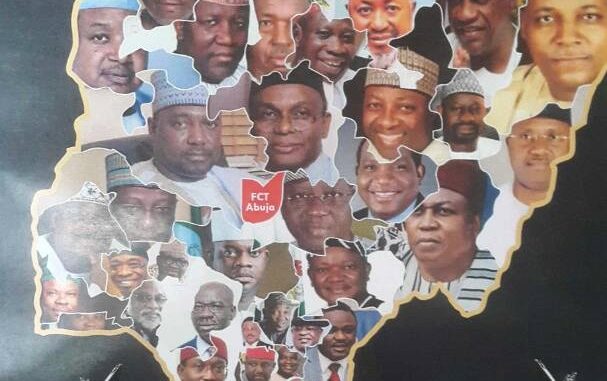THE National Economic Council (NEC) has asked President Bola Ahmed Tinubu to withdraw the tax reform bills from the National Assembly to pave the way for adequate consultations.
The NEC is chaired by Vice-President Kashim Shettima and has governors as members.
The Council made the recommendation after its meeting on Thursday.
Speaking with State House Correspondents after the meeting, Seyi Makinde, Oyo State governor, said Council members agreed that it was necessary to allow for consensus building and understanding of the bill among Nigerians.
“NEC today took a presentation from the Chairman of the Presidential Committee on Fiscal Policy and Tax Reforms. Their main focus is fair taxation, responsible borrowing and sustainable spending,” Makinde said.
He said the Council acknowledged the country’s underperformance across all indices related to major revenue sources, including the tax-to-GDP ratio and other indicators.
“So after extensive deliberation, NEC noted the need for sufficient alignment between and amongst the stakeholders for the proposed reforms,” he added.
“So, Council, therefore, recommend the need to withdraw the bill currently before the National Assembly on tax reforms so that we can have wider consultations and also build consensus around these reforms for the benefit of the entire country, and also to give people…for them to know the vision and where we are moving the country in terms of tax reform because there’s really a lot of miscommunication, misinformation.
“So, the bill should be withdrawn from the National Assembly and then there will be consultations afterwards.”
The latest development comes amid debates surrounding resource control and the distribution of Value Added Tax revenue among states. Many Northern states where Sharia law is practised prohibit the sale of alcoholic beverages yet receive a share of VAT collected from alcohol-consuming sales.
In the new tax reform bill, the Taiwo Oyedele-led panel proposed the amendment of the distribution formula to a derivation-based model.
President Tinubu had, on 3 October 2024, asked the National Assembly to consider and pass four tax reform bills.
The proposed laws include the Nigeria Tax Bill, the Tax Administration Bill, and the Joint Revenue Board Establishment Bill.
Reacting to the development, the Northern States Governors Forum (NSGF), representing the 19 states of the North, following a joint meeting with the Northern Traditional Rulers Council at the Kaduna Government House on 28 October 2024, expressed their opposition to the proposed laws.
The governors asked the National Assembly to reject any proposed legislation that may harm the region’s interests, calling for equitable and fair implementation of national policies and programmes to prevent marginalisation of any geopolitical zone.
The governors claimed that the proposed model would be at the disadvantage of the Northern states and other less industrial regions.
The governors said that VAT is currently remitted based on the location of company headquarters rather than where goods and services are consumed.
They added that the measure will negatively affect the distributed revenue from the Federal Accounts Allocation Committee.
Meanwhile, the Presidency had assured the Northern governors that the proposed tax laws would not increase the number of taxes.
In a statement on Thursday, Bayo Onanuga, Special Adviser to the President on Information and Strategy, said the proposed laws, as enunciated in the bill, are designed to create a fairer system that will benefit all states.
Onanuga stated that the ongoing tax reform seeks to correct the inequity in the current derivation model as a basis for distributing VAT revenue.
“While we commend the governors and traditional rulers for supporting President Bola Tinubu over the success recorded in addressing the country’s security challenges, we consider it necessary to address the misunderstandings and misgivings around the tax reform already embarked upon by the administration,” the statement read.
According to Onanuga, the new policy initiatives are aimed at streamlining Nigeria’s tax administration processes, enhancing efficiency and eliminating redundancies across the nation’s tax operations.
He explained that the reforms being proposed are critical to improving the lives of Nigerians and were not put forward by President Tinubu to undermine any part of the country.
“President Tinubu and the Federal Executive Council recently endorsed new policy initiatives aimed at streamlining Nigeria’s tax administration processes, enhancing efficiency and eliminating redundancies across the nation’s tax operations.
“These reforms emerged after an extensive review of existing tax laws. The National Assembly is considering four executive bills designed to transform and modernise Nigeria’s tax landscape.
“First is the Nigeria Tax Bill, which aims to eliminate unintended multiple taxation and make Nigeria’s economy more competitive by simplifying tax obligations for businesses and individuals nationwide.
“Second, the Nigeria Tax Administration Bill (NTAB) proposes new rules governing the administration of all taxes in the country. Its objective is to harmonise tax administrative processes across federal, state and local jurisdictions for ease of compliance for taxpayers in all parts of the country.
“Third, the Nigeria Revenue Service (Establishment) Bill seeks to rename the Federal Inland Revenue Service (FIRS) as the Nigeria Revenue Service (NRS) to better reflect the mandate of the Service as the revenue agency for the entire federation, not just the Federal Government.
“Fourth, the Joint Revenue Board Establishment Bill proposes the creation of a Joint Revenue Board to replace the Joint Tax Board, covering federal and all states’ tax authorities,” he stated.
Eighteen-Eleven Media


